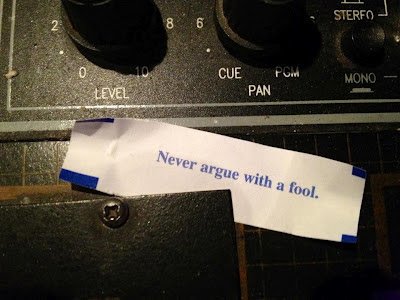Deactivating my personal FB account has definitely been the right decision for me, even though it has not been easy. I have been tempted many times to reactivate with just a few clicks of my mouse. It would be so easy! I'd have all my "friends" back, I'd know everything about what is going on in their lives, and I could share to my hearts content about what I was doing, what I was eating, what I was thinking when I got cut off in traffic. But after reading this article "Is Facebook Making Us Lonely?" (http://www.theatlantic.com/magazine/archive/2012/05/is-facebook-making-us-lonely/8930/#) I have to wonder if I even want to enter back into the Facebook world.
The reason I left for a bit is simply this: I was spending too much time on it, and the more time I spent the more isolated I began to feel. I had begun to replace face to face interaction with online interaction. I was neglecting my true heart and what it needed more.
I'm not saying all FB or online interaction is false or fake or useless, please don't hear that. I believe it is highly valuable, especially being a word person. I have many friends with whom I've interacted with on different levels on FB (from deep conversations to silly comment wars), and these interactions have definitely translated to our real world friendships. However, I became more dependent on the online interactions than the face to face, which is why I relate to this article so much.
I am so lucky to have wonderful friends that support me and hang out with me offline, and this deactivation period has really made me realize
how much I need and love my face time with them. I highly, HIGHLY recommend reading this article, especially if you log onto FB even semi-daily. A few really great paragraphs I completely agreed with are below. I'd love to hear your take on this as well, please utilize the comment option here on the blog. Or wait... Give me a call and we can talk about it. Better yet, let's do a face to face coffee! Let's turn this lonely trend around, starting in our little corner of the world.
"Our omnipresent new technologies lure us toward increasingly superficial connections at exactly the same moment that they make avoiding the mess of human interaction easy. The beauty of Facebook, the source of its power, is that it enables us to be social while sparing us the embarrassing reality of society—the accidental revelations we make at parties, the awkward pauses, the farting and the spilled drinks and the general gaucherie of face-to-face contact. Instead, we have the lovely smoothness of a seemingly social machine. Everything’s so simple: status updates, pictures, your wall.
But the price of this smooth sociability is a constant compulsion to assert one’s own happiness, one’s own fulfillment. Not only must we contend with the social bounty of others; we must foster the appearance of our own social bounty. Being happy all the time, pretending to be happy, actually attempting to be happy—it’s exhausting."
"Sherry Turkle, a professor of computer culture at MIT who in 1995 published the digital-positive analysis Life on the Screen, is much more skeptical about the effects of online society in her 2011 book, Alone Together: “These days, insecure in our relationships and anxious about intimacy, we look to technology for ways to be in relationships and protect ourselves from them at the same time.” The problem with digital intimacy is that it is ultimately incomplete: “The ties we form through the Internet are not, in the end, the ties that bind. But they are the ties that preoccupy,” she writes. “We don’t want to intrude on each other, so instead we constantly intrude on each other, but not in ‘real time.’”"
"A considerable part of Facebook’s appeal stems from its miraculous fusion of distance with intimacy, or the illusion of distance with the illusion of intimacy. Our online communities become engines of self-image, and self-image becomes the engine of community. The real danger with Facebook is not that it allows us to isolate ourselves, but that by mixing our appetite for isolation with our vanity, it threatens to alter the very nature of solitude. The new isolation is not of the kind that Americans once idealized, the lonesomeness of the proudly nonconformist, independent-minded, solitary stoic, or that of the astronaut who blasts into new worlds. Facebook’s isolation is a grind. What’s truly staggering about Facebook usage is not its volume—750 million photographs uploaded over a single weekend—but the constancy of the performance it demands. More than half its users—and one of every 13 people on Earth is a Facebook user—log on every day. Among 18-to-34-year-olds, nearly half check Facebook minutes after waking up, and 28 percent do so before getting out of bed. The relentlessness is what is so new, so potentially transformative. Facebook never takes a break. We never take a break. Human beings have always created elaborate acts of self-presentation. But not all the time, not every morning, before we even pour a cup of coffee. "



































